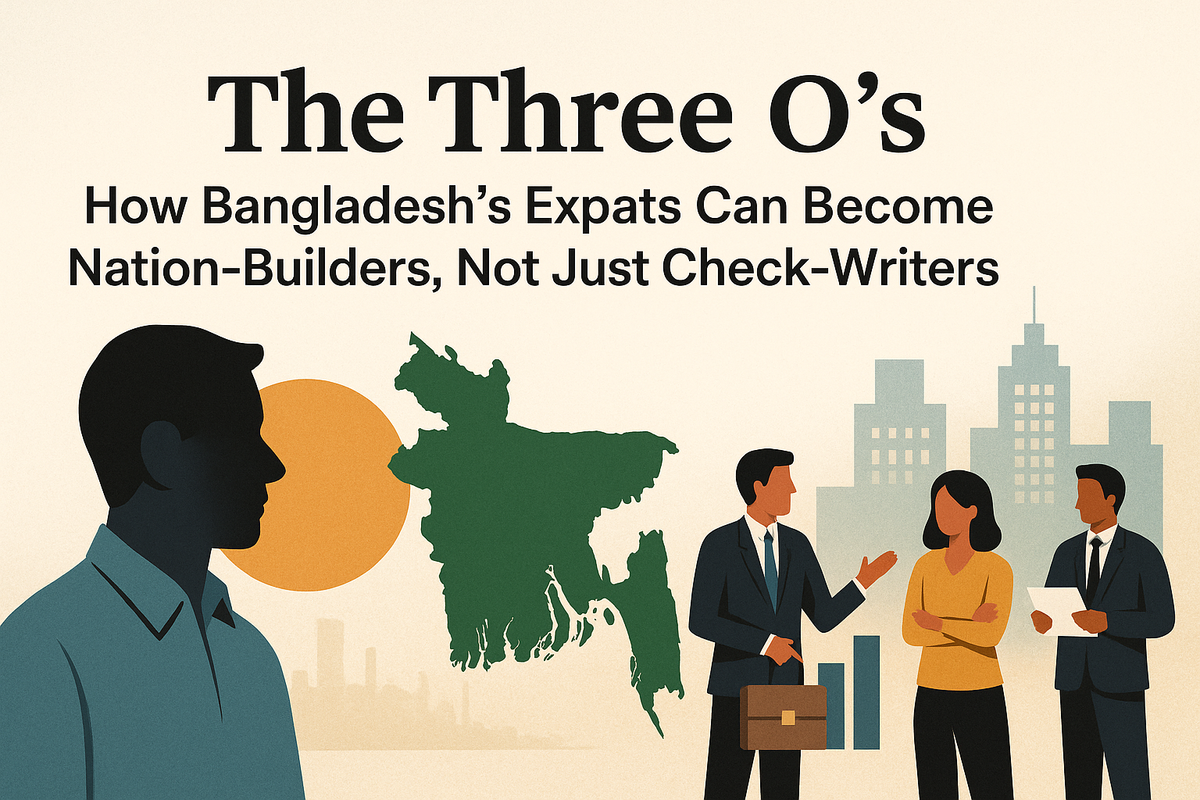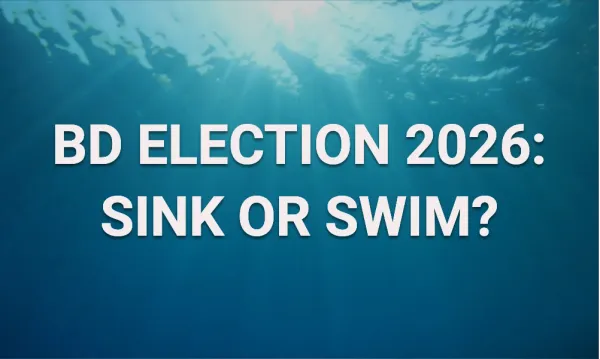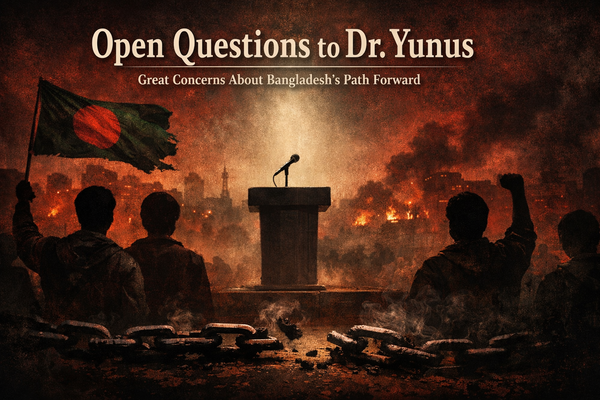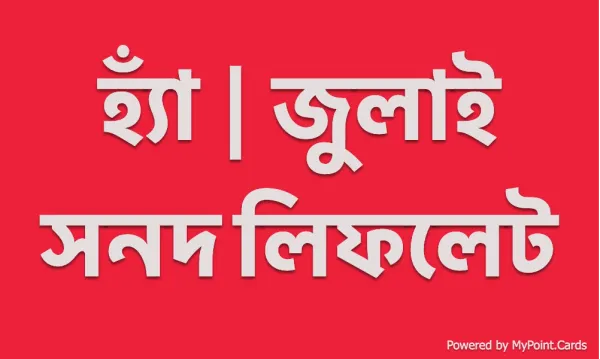The Three O's: How Bangladesh's Expats Can Become Nation-Builders, Not Just Check-Writers

Table of Contents
The WhatsApp message arrived at 2 AM London time, but Rafiq was already awake, scrolling through news from Dhaka. Another political crisis. Another flood. Another factory fire. Like millions of Bangladeshi expats worldwide, he felt that familiar knot in his stomach—the peculiar ache of watching your homeland struggle from thousands of miles away, armed with nothing but a money transfer app and an endless stream of worry.
For decades, this has been the script: Bangladesh's 13 million expats send money home—nearly $25 billion last year alone—then return to their lives in London, New York, Toronto, or Dubai, feeling vaguely helpful but deeply disconnected. It's a relationship built on guilt and distance, where success abroad somehow feels like betrayal, and the only acceptable penance is a monthly wire transfer.
But what if we've been thinking about this all wrong?
As Bangladesh stands at a crossroads—some call it Bangladesh 2.0, a moment of potential transformation—it's time to reimagine what its global diaspora could be. Not just ATMs with passports, but active architects of the nation's future. This isn't about replacing remittances; it's about transcending them through what I call the Three O Model: Observe, Operate, and Own.
This framework, distinctly different from Dr. Yunus's well-known three-zero model targeting poverty, environment, and unemployment, offers something more fundamental: a new way for expats to connect with their homeland that goes beyond nostalgia and guilt, creating instead a relationship built on engagement, expertise, and genuine stakes in the country's success.
The Watchers
Why Observation Matters
Picture this: A Bangladeshi software engineer in Silicon Valley notices that every major tech publication is covering artificial intelligence, but the news from Dhaka's English dailies reads like it's still 2015. A doctor in Toronto sees her homeland's healthcare system through the sanitized lens of government press releases, knowing the reality her cousins describe over video calls tells a different story. A banker in Singapore watches infrastructure projects announced with fanfare, only to visit home and find the same half-built flyovers from five years ago.
This information gap isn't just frustrating—it's dangerous. How can a diaspora help when it doesn't really know what's happening?
The first O—Observe—isn't about spying or undermining. It's about creating independent channels of information that exist beyond the reach of local political pressures. Imagine expat-funded news organizations, operating from London or New York, with journalists in Dhaka who can't be threatened by withdrawal of government advertising or mysterious tax audits. Think of it as Bangladesh's equivalent of the BBC—trusted precisely because it sits outside the system it reports on.
But observation goes deeper than media. When the Bangladeshi tech diaspora in Seattle creates a think tank analyzing the country's digital economy, they bring something local researchers often can't: the freedom to be brutally honest. They can benchmark Bangladesh against Vietnam or Ethiopia without worrying about bruising political egos. They can track corruption indicators without fearing midnight knocks on their doors.
This isn't about criticism for its own sake. It's about creating what every healthy democracy needs: a mirror that doesn't lie. The Irish diaspora did this brilliantly during Ireland's transformation, funding research centers that told hard truths about the economy while maintaining credibility with international investors. The result? Policy changes that helped transform Ireland from Europe's poorest country to one of its richest.
Dr. Shahana Mirza, a Bangladeshi economist at MIT, puts it bluntly: "We have the luxury of tenure and distance. We can say the emperor has no clothes when everyone else is afraid to look."
The Builders
Moving from Sympathy to Strategy
Observation without action is just sophisticated gossip. That's where the second O—Operate—transforms insight into impact.
Consider Dr. Aminul Haque, a cardiologist who left Chattogram for Chicago thirty years ago. For decades, he sent money to build a small clinic in his village. Noble, certainly, but limited. Then, during the pandemic, he discovered something powerful: he could examine patients in that clinic via video link, guide local doctors through procedures, and even conduct virtual training sessions. Suddenly, his expertise—not just his money—was flowing back home.
This is Operation at its core: deploying the skills, knowledge, and networks that expats have accumulated in advanced economies. It's the Bangladeshi engineer at Tesla teaching electric vehicle design to students in Dhaka via weekend Zoom sessions. It's the finance professional from Wall Street helping restructure a struggling Bangladeshi bank. It's the marketing executive from London helping Bangladeshi textile companies build global brands instead of remaining anonymous suppliers.
The beauty of Operation is that it creates value without requiring anyone to give up their lives abroad. In an age of digital connectivity, expertise can flow as easily as remittances. A consortium of Bangladeshi doctors across North America recently created a telemedicine network serving rural Bangladesh. They don't need to return permanently; they just need to log on.
But Operation isn't just about individual efforts. When Bangladeshi tech workers in Silicon Valley noticed their homeland lagging in artificial intelligence education, they didn't just complain—they created an online AI bootcamp that has trained over 5,000 students in Bangladesh, with job placement rates that would make any university jealous. The program costs a fraction of traditional education because the instructors, successful professionals abroad, teach for purpose, not profit.
These operational interventions create ripple effects. That AI bootcamp didn't just train programmers; it convinced several tech companies to open offices in Dhaka, knowing they could find talent. The telemedicine network didn't just treat patients; it reduced the brain drain by showing young doctors they could have global careers without leaving Bangladesh.
The Owners
Skin in the Game Changes Everything
Here's where the model gets truly radical. The third O—Own—asks expats to stop thinking like charitable donors and start thinking like investors.
When Shahid Rahman left Sylhet for Sydney in 1995, he built a successful logistics company. For years, he sent money home, funding his nephew's education, contributing to village development. Classic remittance relationship. Then, in 2018, he tried something different. Instead of sending another donation, he invested in a Bangladeshi startup creating software for supply chain management. He didn't just provide capital; he opened doors to Australian clients, shared decades of industry knowledge, and joined the board.
Today, that startup employs 200 people in Dhaka and serves clients across Asia. Shahid's returns have far exceeded what he ever sent as remittances. More importantly, he's created something sustainable—jobs, technology transfer, and a company that will outlast any individual donation.
This is ownership: expats becoming stakeholders, not just benefactors. It means buying equity in Bangladeshi companies, not just buying goods during homeland visits. It means establishing businesses that create employment, not just funding consumption. It means building institutions that last, not just supporting immediate needs.
The numbers tell a compelling story. When the Bangladeshi diaspora in the Middle East created a private equity fund focused on small and medium enterprises in Bangladesh, their first fund of $50 million generated returns of 18% annually while creating over 5,000 jobs. Compare that to remittances, which often fund consumption with no multiplier effect.
Ownership extends beyond business. When a group of Bangladeshi-American academics established a private university outside Dhaka, they didn't just fund it—they own it, govern it, and ensure its standards match international levels. The result? Graduates who can compete globally without leaving Bangladesh.
The psychological shift is profound. As Nasreen Huq, a Bangladeshi venture capitalist in London, explains: "When you own something, you care differently. You don't just hope things improve; you work to make them improve. You have skin in the game."
The Triple Helix
When O's Interweave
The magic happens when all three O's work together, creating what scientists call emergent properties—outcomes impossible through individual elements alone.
Take the story of GreenTech Bangladesh. It started when a group of Bangladeshi environmental scientists in Europe (Observe) noticed through their research that Bangladesh's solar potential was vastly underutilized compared to similar countries. They didn't just publish a paper; they organized a workshop (Operate) bringing together expat engineers, local entrepreneurs, and government officials. From that workshop emerged a business plan for a solar panel manufacturing company. The expat group didn't just advise; they invested $10 million and took a 40% stake (Own).
Today, GreenTech Bangladesh employs 1,500 people, has installed solar systems in 100,000 homes, and is expanding to Myanmar and Nepal. The expat board members use their networks to secure international contracts, their expertise to maintain quality standards, and their independence to resist political pressure for patronage hiring.
This is the triple helix in action: observation identifying opportunity, operation providing expertise, and ownership ensuring commitment. Each element reinforces the others, creating a virtuous cycle that transforms good intentions into lasting impact.
The model also builds resilience. When you only observe, you can be dismissed as out-of-touch critics. When you only operate, you're vulnerable to shifting political winds. When you only own, you might lack the knowledge and networks to succeed. But when you do all three? You become indispensable.
The Obstacles Are Real, But Not Insurmountable
Of course, transformation is never simple. The Bangladeshi government's stance on dual citizenship remains frustratingly restrictive. Investment regulations seem designed to discourage rather than welcome diaspora capital. Property rights feel tenuous when political connections matter more than legal documents.
These are real challenges, but other countries have overcome them. India revolutionized its diaspora engagement by creating Overseas Citizen of India status—not quite dual citizenship, but close enough to encourage investment. China established special economic zones where diaspora investors received preferential treatment. Ireland created tax incentives specifically for returning emigrants who brought international business with them.
The bigger challenge might be psychological. Many expats carry guilt about leaving, seeing success abroad as a form of betrayal. The homeland, meanwhile, often views returnees with suspicion—too foreign to be trusted, too successful to be relatable. Breaking through this mutual mistrust requires patience, persistence, and probably a generational shift.
There's also the coordination problem. The Bangladeshi diaspora is scattered, divided by region, religion, and politics. Unlike the Jewish diaspora's organized support for Israel or the Armenian diaspora's unified advocacy, Bangladeshis abroad often work in isolation, their efforts fragmented and sometimes contradictory.
But technology is changing this. WhatsApp groups connect Bangladeshi professionals across continents. LinkedIn networks link entrepreneurs in Dhaka with mentors in Denver. Zoom makes geography irrelevant for board meetings or training sessions. The infrastructure for coordination exists; it just needs purpose and structure.
Learning from Others, Charting Our Own Path
The world offers templates, but no perfect model. Ireland's diaspora helped transform it from agricultural backwater to tech hub, but Ireland had EU membership as a catalyst. India's tech diaspora created a bilateral corridor between Silicon Valley and Bangalore, but India's size gave it leverage Bangladesh lacks. China's diaspora fueled manufacturing growth, but China's authoritarian efficiency isn't replicable (nor desirable).
Bangladesh needs its own approach, one that acknowledges its unique position—densely populated but small, strategically located but politically volatile, young and ambitious but institutionally weak. The Three O Model offers a framework flexible enough to adapt to these realities while structured enough to create real change.
The model also speaks to generational differences. First-generation emigrants might focus on Ownership, leveraging their business success. Second-generation Bangladeshis, more comfortable with their hybrid identities, might excel at Observation, bridging cultural gaps with analytical precision. Young professionals might drive Operation, using technology to deliver expertise without geographical constraints.
The Vision
From Brain Drain to Brain Circulation
Imagine Bangladesh in 2035. The morning news comes from BD Global, an independent media network funded by diaspora shareholders and staffed by journalists in Dhaka, London, and New York. Its investigative reporting has exposed three major corruption scandals, leading to actual prosecutions.
A young entrepreneur in Chattogram is getting her Series A funding from Probashi Ventures, a diaspora-led fund that has backed 50 Bangladeshi startups. Her mentor, a Bangladeshi CEO in Toronto, joins the weekly strategy call from his office.
A farmer in Rangpur checks crop prices on an app developed by Bangladeshi programmers in Berlin, funded by expat investors, and governed by a board that includes diaspora members ensuring the farmers' interests aren't forgotten.
The new private hospital in Sylhet, built with diaspora investment, offers world-class care with telemedicine support from Bangladeshi specialists worldwide. It's profitable, proving healthcare can be both excellent and sustainable.
This isn't fantasy. Every element exists somewhere today, just not at scale or in coordination. The Three O Model provides the framework to move from scattered success stories to systematic transformation.
Beyond Remittances
A New Relationship
At its heart, the Three O Model represents a new relationship between Bangladesh and its global children. Not the patron-client dynamic of remittances, where success abroad creates obligation at home. Not the bitter escape of those who leave and never look back. But something more mature: a partnership where distance becomes advantage, where success abroad amplifies impact at home, where identity isn't about choosing sides but bridging worlds.
This model asks expats to be more than wage earners with guilty consciences. It asks them to be watchdogs protecting democracy, teachers sharing knowledge, and investors building the future. It's a big ask, but then again, Bangladesh's challenges demand nothing less.
For Rafiq in London, checking his phone at 2 AM, this model offers something remittances never could: agency. Not just the ability to send money, but to shape outcomes. To observe with purpose, operate with impact, and own pieces of the future he wants to see.
The monthly wire transfer will continue—family needs don't disappear. But alongside it grows something more powerful: engagement that transforms both homeland and diaspora. The Three O Model doesn't ask expats to come back. It asks them to lean in, to use their unique position—neither fully inside nor outside—to become bridges, catalysts, and guardians of Bangladesh's potential.
Bangladesh 2.0 won't be built by the government alone, nor by international development agencies with their consultants and conferences. It will be built by Bangladeshis, including those who carry the country in their hearts across the world's cities. The Three O Model simply provides the architecture for that building—a framework where observation sharpens vision, operation delivers expertise, and ownership ensures everyone has skin in the game.
The remittance economy made Bangladesh resilient. The Three O economy could make it remarkable. The choice, as always, belongs to those willing to act. The question isn't whether you left Bangladesh, but whether Bangladesh ever left you. And if it hasn't—if you still feel that 2 AM anxiety, that pull of possibility—then perhaps it's time to move beyond sending money home and start building the home you want to send money to.
After all, the best way to predict Bangladesh's future isn't to watch from afar or wire funds from abroad. It's to own a piece of it, operate within it, and observe it with eyes that see not just what is, but what could be.




